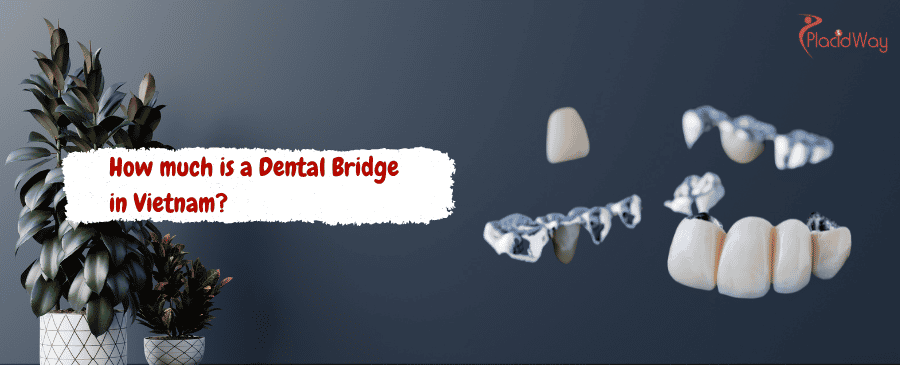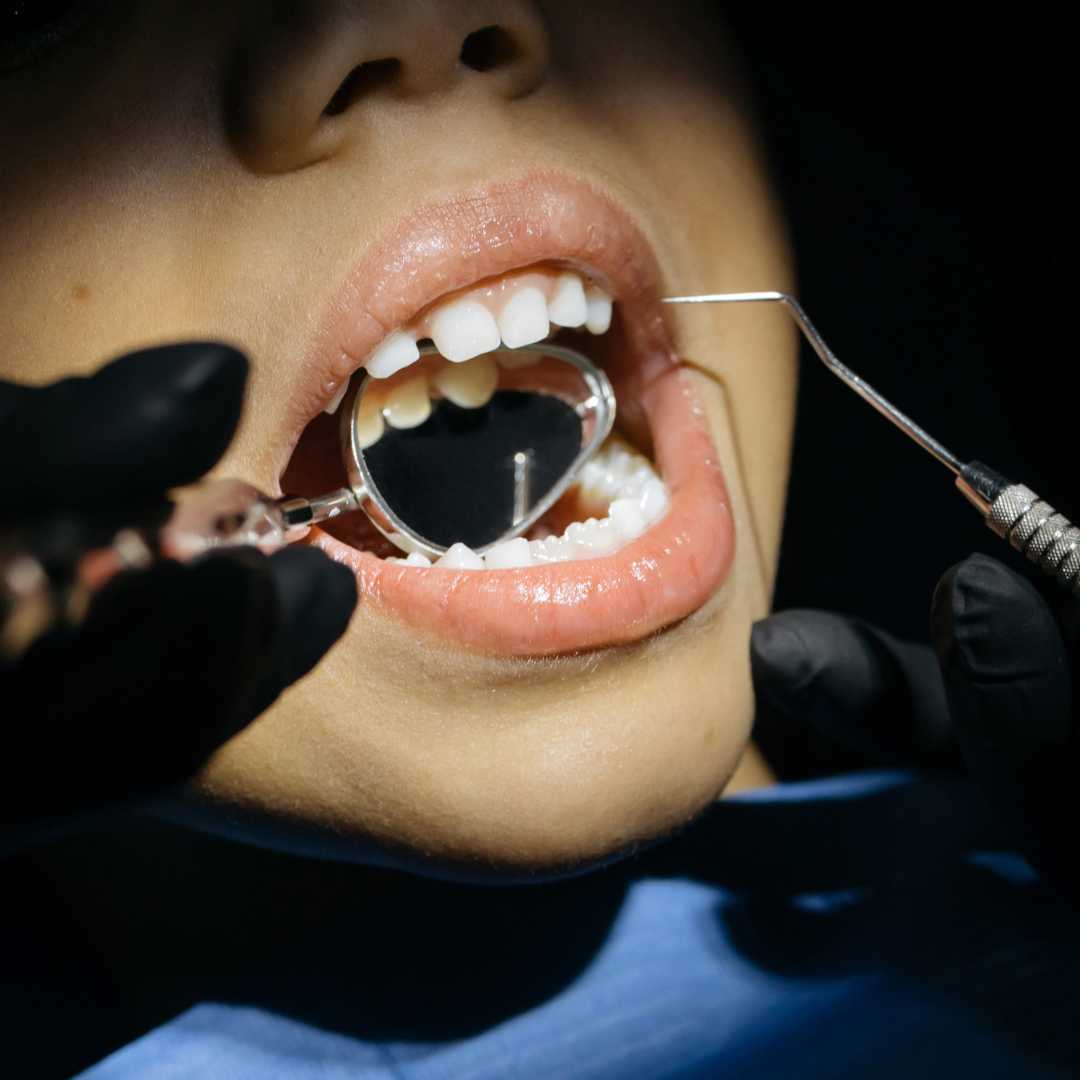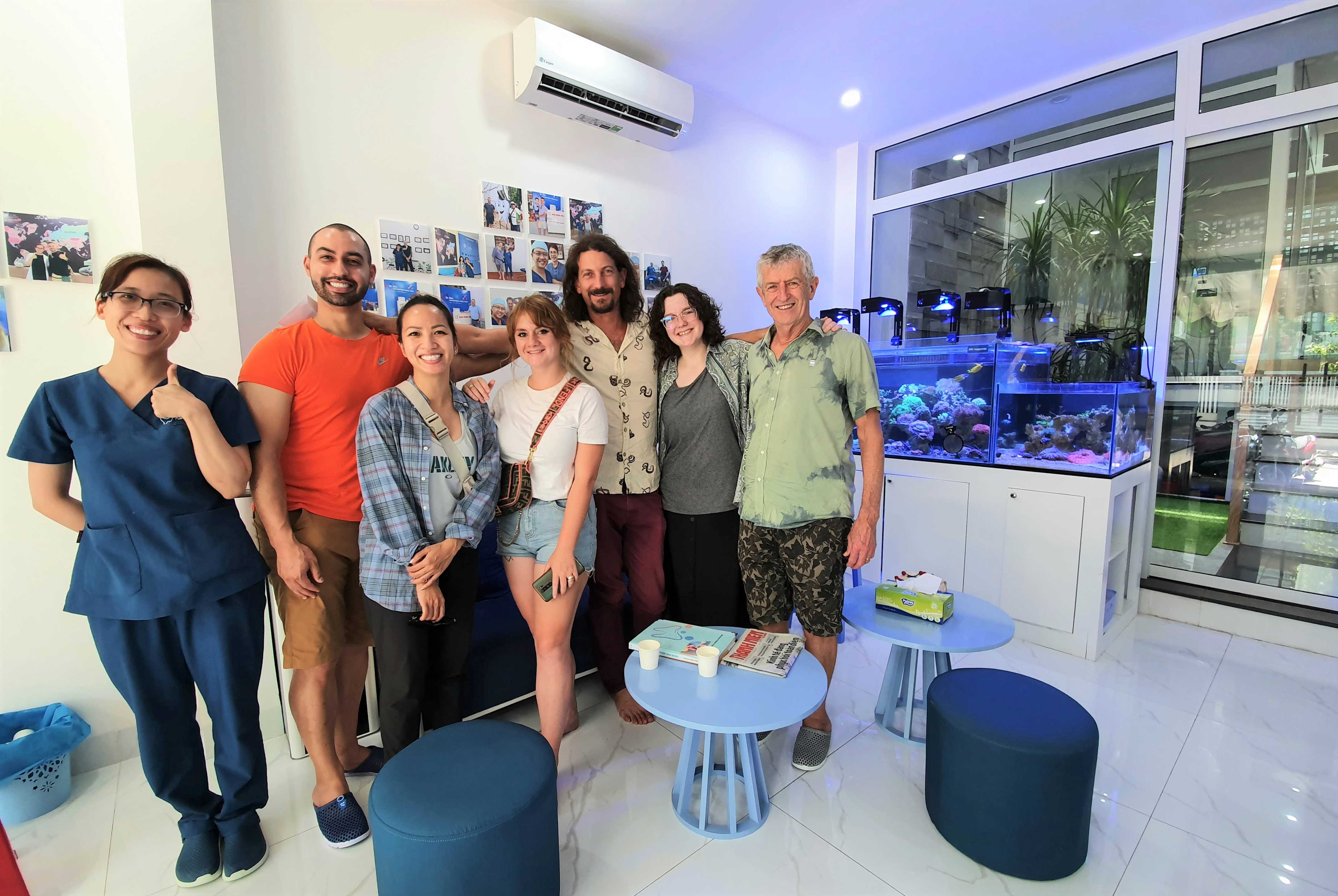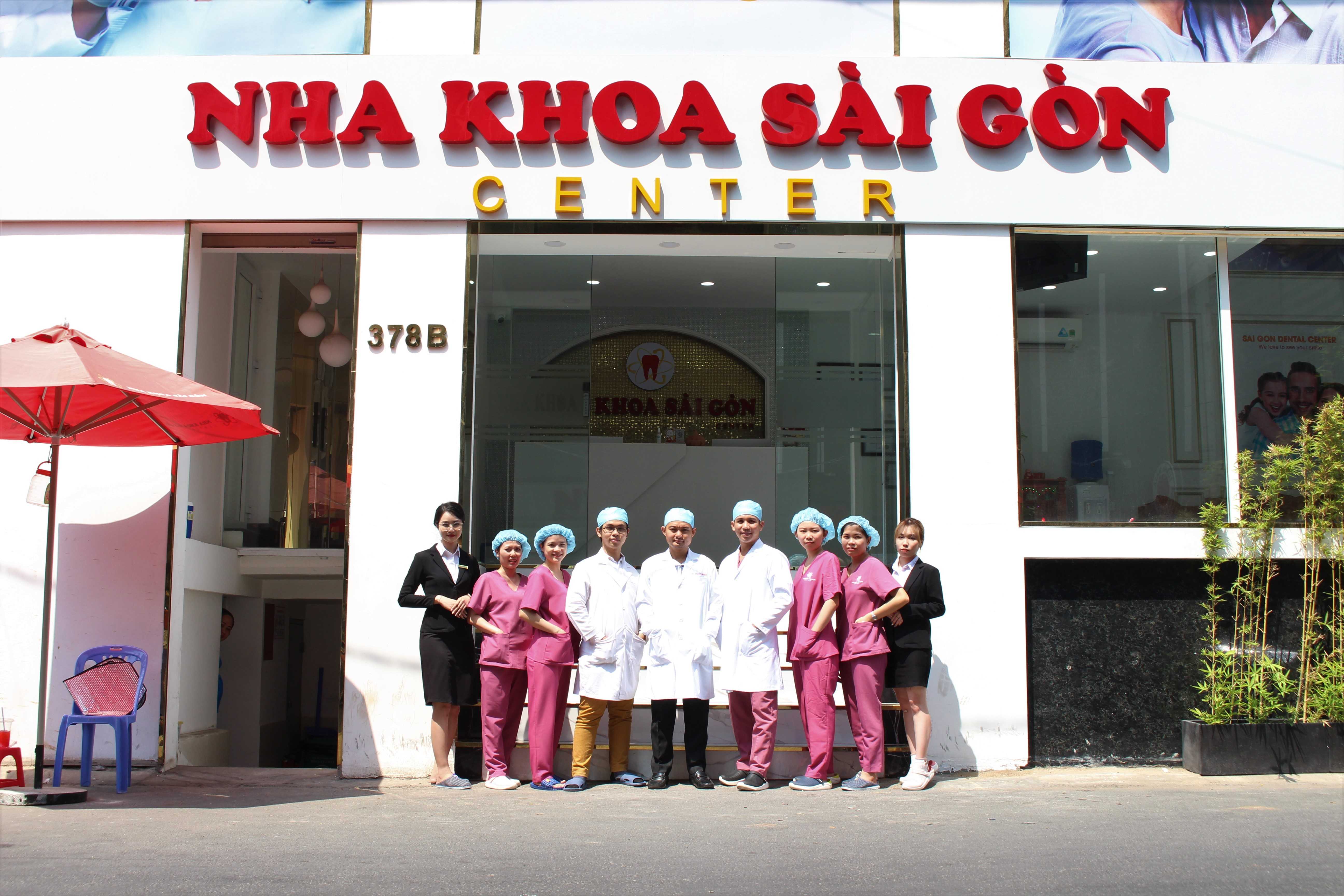Get a Dental Bridge in Vietnam: Prices & Top Clinics

Are you considering a dental bridge in Vietnam but are unsure about the costs and procedures involved? You're in the right place. Vietnam has become a popular destination for high-quality, affordable dental work, and for good reason. The combination of skilled dentists, modern clinics, and significantly lower prices makes it an attractive option for people from all over the world. A dental bridge is a fantastic solution for replacing missing teeth, restoring your smile, and improving your ability to chew and speak comfortably. This comprehensive guide will walk you through everything you need to know about getting a dental bridge in Vietnam, from the initial consultation to the final placement. We'll delve into the various types of bridges available, the factors that influence the cost, and how to choose a reputable clinic that meets international standards. By the end of this article, you'll have a clear understanding of what to expect and be well-equipped to make an informed decision about your dental health journey.
What is the exact cost of a dental bridge in Vietnam?
The price of a dental bridge in Vietnam is a fraction of what you would pay in countries like the United States, Australia, or the United Kingdom. This affordability does not come at the expense of quality. Many Vietnamese dental clinics use the same high-quality materials and state-of-the-art technology as their Western counterparts. The lower cost is primarily due to the lower cost of living and operational expenses in Vietnam.
Several factors can influence the final price of your dental bridge. These include the number of missing teeth that need to be replaced, the type of materials used for the bridge (e.g., porcelain, zirconia, or metal alloys), the complexity of the procedure, and the reputation and location of the dental clinic. During your initial consultation, the dentist will provide you with a detailed cost breakdown based on your specific needs.
What are the different types of dental bridges available in Vietnam and their costs?
Understanding the different types of dental bridges can help you and your dentist decide on the best option for your situation. Here’s a breakdown of the common types and their estimated costs in Vietnam:
- Traditional Dental Bridge: This is the most common type of bridge, consisting of one or more pontics (artificial teeth) held in place by dental crowns that are cemented onto the adjacent natural teeth. The cost for a traditional porcelain-fused-to-metal bridge is generally between $60 and $200 per unit.
- Cantilever Bridge: This type of bridge is used when there is only one adjacent tooth to support the pontic. It's not as common as a traditional bridge and is typically used for teeth under less stress, such as those in the front of the mouth. The cost is similar to a traditional bridge.
- Maryland Bridge: Also known as a resin-bonded bridge, this type uses a metal or porcelain framework that is bonded to the backs of the adjacent teeth. It's a more conservative option as it doesn't require crowns on the neighboring teeth. The cost for a Maryland bridge can range from $100 to $300 per unit.
- Implant-Supported Bridge: This is the most durable and stable option. Instead of being supported by natural teeth, the bridge is supported by dental implants. This is an excellent solution for multiple missing teeth. The cost is higher, typically starting from $500 per unit, plus the cost of the implants.
How long does the dental bridge procedure take in Vietnam?
The process for getting a dental bridge in Vietnam is efficient and well-organized, especially in clinics that cater to international patients. The first step is a thorough examination and consultation, which may include X-rays to assess the health of your teeth and jawbone. During the first treatment visit, the dentist will prepare the abutment teeth by reshaping them to make room for the crowns. An impression of your teeth will then be taken and sent to a dental lab where your custom bridge will be created. A temporary bridge will be placed to protect your prepared teeth.
Your second visit is usually scheduled a few days later, once your permanent bridge is ready. The dentist will remove the temporary bridge and check the fit and color of the new one. After any necessary adjustments are made, the bridge will be permanently cemented into place. The entire process is relatively quick, allowing you to enjoy your new smile in a short amount of time.
Is it safe to get a dental bridge in Vietnam?
Patient safety is a top priority for reputable dental clinics in Vietnam. Many of these clinics are equipped with modern technology and follow international sterilization protocols. Dentists are often internationally trained and have extensive experience in performing a wide range of dental procedures. To ensure your safety, it's crucial to do your research and select a clinic with a proven track record of successful treatments and positive patient reviews.
Look for clinics that are transparent about their dentists' qualifications, the materials they use, and their sterilization processes. A good clinic will be happy to answer all your questions and provide you with all the information you need to feel comfortable and confident in your decision. Many top-tier clinics in cities like Ho Chi Minh City and Hanoi have a long history of treating international patients and understand their specific needs and expectations.
What should I expect during a dental bridge consultation in Vietnam?
Your initial consultation is a critical step in the process. It's an opportunity for you to meet the dental team, ask questions, and get a clear understanding of your treatment plan. The dentist will perform a thorough oral examination to determine if a dental bridge is the right solution for you. They will assess the health of your abutment teeth and the surrounding bone structure.
The consultation will also involve a discussion about the different types of dental bridges and materials available, along with their respective costs. The dentist will explain the pros and cons of each option to help you make an informed decision. You will also receive a detailed treatment plan that outlines the steps of the procedure, the timeline, and the total cost. This is the perfect time to address any concerns you may have about the treatment, the clinic, or your stay in Vietnam.
What are the risks associated with getting a dental bridge?
While a dental bridge is a safe and effective procedure, like any medical treatment, it carries some potential risks. The most common issues are related to the health of the abutment teeth. If these teeth are not strong enough to support the bridge, they can become damaged. It's also important to maintain excellent oral hygiene to prevent decay from forming under the crowns.
In some cases, the bridge itself may become loose or damaged over time due to normal wear and tear. Choosing a high-quality material for your bridge and following your dentist's aftercare instructions can help minimize these risks. Reputable clinics in Vietnam will discuss these potential risks with you during your consultation and take all necessary precautions to ensure a successful outcome.
How do I care for my dental bridge after the procedure?
Proper care is essential to ensure the longevity of your dental bridge. While the bridge itself is not susceptible to decay, the underlying natural teeth are. Therefore, it's crucial to keep your teeth and gums healthy. You should brush your teeth twice a day with fluoride toothpaste and floss daily. Special flossing tools, such as a floss threader or an interdental brush, can help you clean underneath the pontic.
Regular dental check-ups and professional cleanings are also important. Your dentist will be able to monitor the health of your bridge and your natural teeth and address any issues early on. With proper care, a dental bridge can last for many years, providing you with a beautiful and functional smile.
How do I choose the best dental clinic in Vietnam for a dental bridge?
Selecting the right dental clinic is the most important decision you'll make when considering a dental bridge in Vietnam. Here are some key factors to consider:
- Accreditation and Standards: Look for clinics that have international accreditations, such as ISO certification. This indicates a commitment to quality and safety.
- Dentist's Qualifications: Research the qualifications and experience of the dentists. Many top dentists in Vietnam have trained internationally and are members of professional dental associations.
- Patient Reviews: Read reviews from previous international patients. This can give you valuable insights into the quality of care and the patient experience.
- Technology and Materials: Choose a clinic that uses modern dental technology and high-quality, internationally recognized materials for their bridges.
- Communication: Ensure the clinic has English-speaking staff to avoid any communication barriers.
- Transparency: A reputable clinic will be transparent about their pricing and provide you with a detailed treatment plan and cost estimate upfront.
What are the payment options for a dental bridge in Vietnam?
Payment for dental services in Vietnam is generally straightforward. The majority of clinics that cater to international patients accept major credit cards. It's always a good idea to inform your bank about your travel plans to avoid any issues with your card. Cash payments are also widely accepted, and some clinics may offer a small discount for cash payments.
For more extensive treatments, some clinics may offer financing or installment plans. It's best to inquire about payment options during your initial consultation. This will allow you to plan your budget accordingly and ensure a smooth and stress-free experience.
Does dental insurance cover the cost of a dental bridge in Vietnam?
Many international insurance plans offer some level of coverage for dental work performed abroad. However, the extent of coverage can vary significantly. Before you travel, contact your insurance provider to clarify your benefits for dental procedures in Vietnam. You may need to provide them with a detailed treatment plan and cost estimate from the dental clinic.
Even if your insurance doesn't cover the full cost, the significant savings you'll make by getting a dental bridge in Vietnam can still make it a very cost-effective option. Be sure to get all the necessary documentation from the clinic to submit to your insurance company for reimbursement.
How long will my dental bridge last?
The longevity of a dental bridge is influenced by several factors. High-quality materials like zirconia tend to be more durable and long-lasting than traditional PFM bridges. Your oral hygiene habits also play a crucial role. Diligent brushing and flossing, along with regular dental check-ups, can significantly extend the life of your bridge.
Avoiding hard or sticky foods that can damage the bridge is also recommended. If you have a habit of grinding your teeth, your dentist may suggest wearing a nightguard to protect your bridge and natural teeth from excessive force. By following these simple guidelines, you can enjoy the benefits of your dental bridge for many years to come.
What are the qualifications of dentists in Vietnam?
The quality of dental education in Vietnam is high, and many dentists pursue further training in countries like the United States, Australia, and various European nations. This international exposure ensures they are familiar with the latest advancements in dental technology and procedures. When choosing a dentist, look for their credentials and affiliations with reputable dental associations.
A well-qualified dentist will be able to provide you with a high standard of care and ensure that your dental bridge procedure is performed to the highest standards. Don't hesitate to ask about a dentist's experience and qualifications during your consultation. A reputable professional will be proud to share their credentials with you.
What materials are used for dental bridges in Vietnam?
The choice of material for your dental bridge will depend on your budget, aesthetic preferences, and the location of the missing tooth. PFM bridges are a popular and affordable option, offering good strength and a natural appearance. All-porcelain and zirconia bridges are known for their superior aesthetics and are an excellent choice for front teeth.
Zirconia is a particularly strong and durable material, making it suitable for bridges in any part of the mouth. Your dentist will discuss the benefits of each material with you and help you choose the best option for your needs. Reputable clinics in Vietnam source their materials from trusted international manufacturers, ensuring the quality and safety of your dental work.
What is the process for a foreigner getting a dental bridge in Vietnam?
Many dental clinics in Vietnam are experienced in treating international patients and have developed a seamless process to make your dental journey as easy as possible. The process usually begins with an online consultation, where you can send photos and X-rays of your teeth for an initial assessment and a preliminary quote. The clinic's international patient coordinator will assist you with scheduling your appointments and can often provide help with travel arrangements and accommodation.
Once you arrive in Vietnam, you will have your in-person consultation and begin your treatment. The entire process for a dental bridge can usually be completed within a week, allowing you to combine your dental treatment with a holiday in this beautiful country. The clinic will provide you with all the necessary aftercare instructions and documentation before you return home.
Ready to restore your smile with an affordable, high-quality dental bridge in Vietnam? Explore your options with PlacidWay and connect with leading dental clinics today!


.png)




.png)
.png)








Share this listing